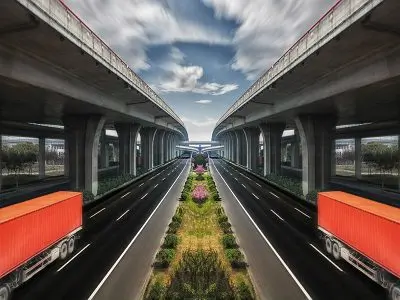
In the last couple of years, big data technology was implemented in many different industries. Big data innovations have uplifted the business process to another level by introducing more predictability and by automating the decision making-process. Implementation of big data into the supply chain management has shown similar results. The use of big data technology has enabled companies to react faster to the changes within their supply chain and to drastically improve customer experience. In this article, we’re going to analyze some of the new supply trends that are directly connected with the big data technology implementation.
Real-time tracking
Today, every modern retail company offers a real-time tracking feature. Time tracking data can also be used as a basis for the innovation of the supply chain, especially when it’s combined with the data coming from the social sources, like eCommerce analytics, social networks, news, weather, etc. Big data allows companies to plan their future inventory and supply routes in real time, without relying on historical data. This functionality is very important for the accuracy of the eCommerce logistics process.
The biggest couriers have already replaced the outdated ERP tracking technology with the Internet of Things sensors, which can follow the whole shipment process in real time and get the location of aircrafts, ocean vessels and trucks that are transporting the goods. By structuring and analyzing this data and combining it with traffic and weather information, companies can plan the safest and the quickest route for the product to reach its end user. In case of emergency, they can also resupply the product from another warehouse or expedite a shipment.
If you love Breaking Bad, like I do, you probably remember the legendary scene from the episode “Dead Freight” when Heisenberg, Jesse and Todd steal the methylamine from the freight train. This type of heist would be impossible, if the wagons that were transporting methylamine were equipped with the IoT sensors.
Supplier sourcing
Big data allows companies to track their suppliers and make immediate changes. For example, a supplier might supply some production company with a batch of defective raw materials. These materials then get transported to the various production plants. When a supplier or a company staff realize that materials are defective, they can use big data to determine their path and narrowly eliminate them from the production process. This way production companies will cut their costs and make sure that a defective product doesn’t reach their end user.
OU Kosher is one of the biggest suppliers of kosher food. Few years ago, their supplier from China, have lost their certification and by using big data they were able to eliminate all affected ingredients from their supply system and alert their business partners to withdraw them from their production and sales processes.
Advanced customer targeting
Big data allows retail and delivery companies to narrowly segment their customers and customize their supply chain in accordance with their purchasing habits. With the use of customer data companies can create different groups of buyer personas, like ‘value shoppers’, ‘early adopters’, ‘last minute shoppers’, etc.
This system helps companies to adjust their supply chain and provide each store with a specific batch of products that follows their shoppers’ buying patterns. This way companies can decrease the number of expired products and product returns and drastically cut their supply chain costs.
Optimizing the use of fulfillment channels
By collecting, analyzing and combining the customer and logistics data, companies can easily adapt their supply chains. They can pick the most suitable type of transportation and storage. Fulfillment channels’ optimization is very important for production, delivery and retail companies because different products require different transportation and sales strategies.
Real-time big data analysis also allows companies to make ongoing alterations during shipment and to change pick-up and storage locations or point of sales arrangements. This way they can upgrade the delivery process and increase product sales.
Most people think that in the next decade technology will completely overtake the supply chain management process. This won’t happen in the near future, because big data still can’t replace the employee who’s walking down the factory or storage floor. It still can’t restock the shelves or call your supplier in the middle of the night. Supply chain management is still a people’s business, so big data can’t be the main decision maker in the process. In spite of that, its real-time insights allow supply chain managers to automate their shipments and improve the productivity of their teams.
In1go Technologies Inc. leverages on value solutions for Supply Chain Management.
This article originally appeared on www.datafloq.com
